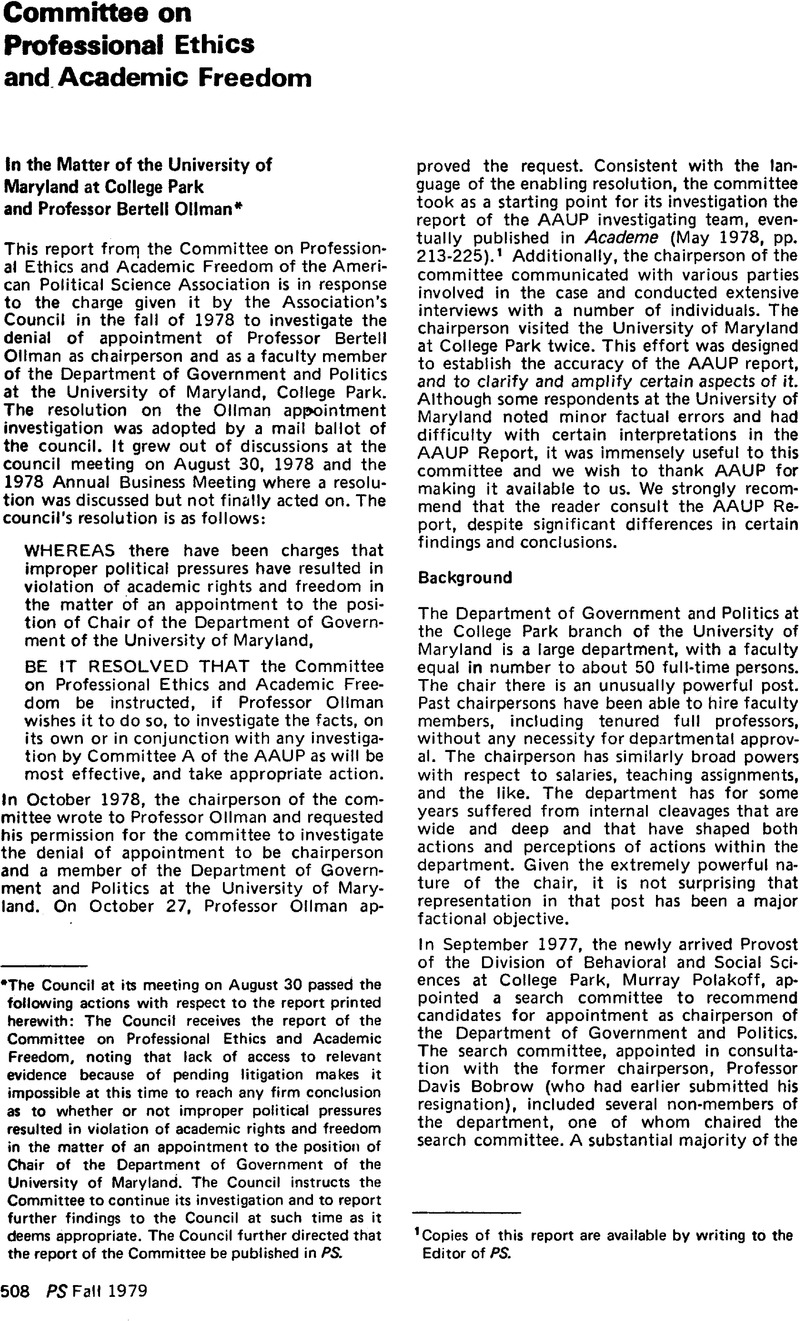No CrossRef data available.
Article contents
Committee on Professional Ethics and Academic Freedom
Published online by Cambridge University Press: 28 November 2022
Abstract

- Type
- Other
- Information
- Copyright
- Copyright © The American Political Science Association 1979
References
* The Council at its meeting on August 30 passed the following actions with respect to the report printed herewith: The Council receives the report of the Committee on Professional Ethics and Academic Freedom, noting that lack of access to relevant evidence because of pending litigation makes it impossible at this time to reach any firm conclusion as to whether or not improper political pressures resulted in violation of academic rights and freedom in the matter of an appointment to the position of Chair of the Department of Government of the University of Maryland. The Council instructs the Committee to continue its investigation and to report further findings to the Council at such time as it deems appropriate. The Council further directed that the report of the Committee be published in PS.
1 Copies of this report are available by writing to the Editor of PS.
2 The AAUP Report assigns to the provost most of the blame for the several weeks delay in the forwarding of the formal recommendation, but our own inquiries indicate that the root of the problem was the delay in the completion of the search committee's formal report and documentation.
3 To the dispassionate observer, this sequence of events is a classic example of the validity of Schattschneider's proposition in The Semi-Sovereign People that losers in a political struggle try to expand the conflict into a new and higher arena.
4 Published in full in Bulletin of the American Association of University Professors, Winter, 1966, pp. 375–79.
5 In offering this judgment, we do not mean to single out for attack either Provost Polakoff or the search committee; both apparently proceeded in accordance with the usual way of doing things at the College Park campus. The blame must go as well to preceding administrators, chairpersons, and faculty members who engaged in or acquiesced in faculty appointments without departmental approval. (The extent to which the departmental faculty had abdicated its responsibilities is well illustrated by the lack of a second to a motion, made in a meeting with members of the search committee before any nominations had gone to the provost, to have the department express its preferences among the leading candidates.) We are pleased to report, however, that in the aftermath of Professor Ollman's rejection steps have been taken to ensure that henceforth faculty appointments in the Department of Government and Politics will be subject to departmental review.
6 We do not find such responses to be a threat to academic freedom only because we doubt the applicability of that concept to administrative appointments. We understand by academic freedom the right of a faculty member to seek the truth, in teaching or in research, without interference. It is hard to see how a scholar's right to seek the truth includes the right to administer a department.




